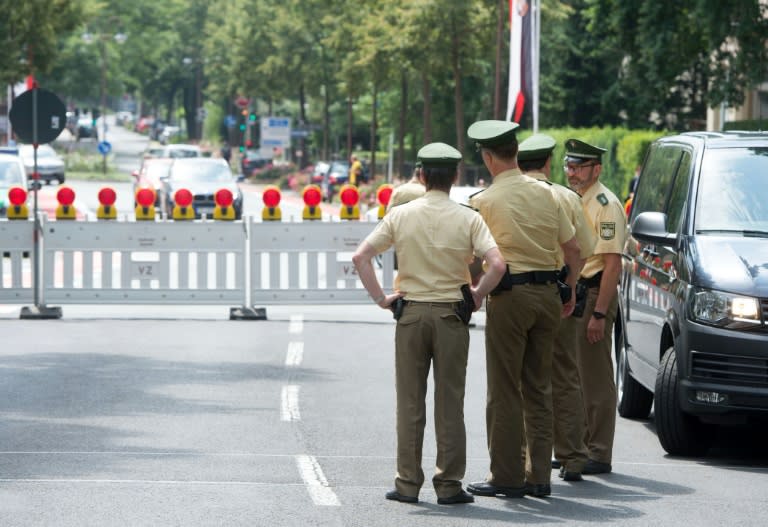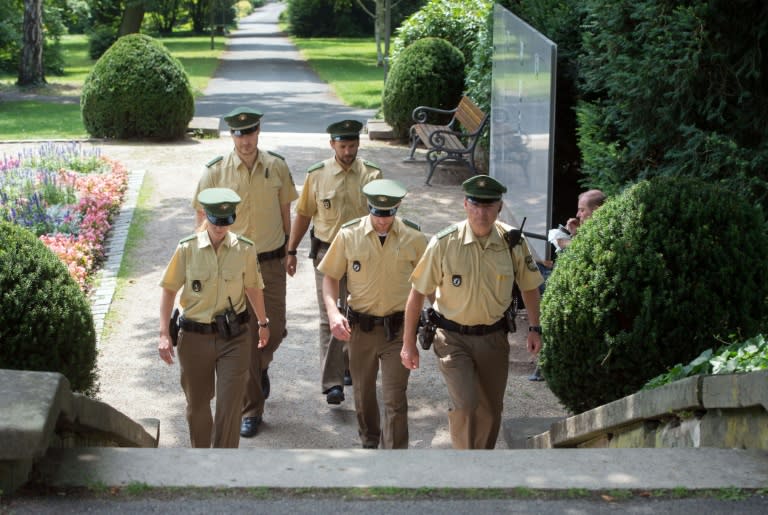Wagner festival given rapturous reception on opening night
Germany's legendary Bayreuth opera festival, dedicated to the works of Richard Wagner, got off to a rapturous start on Monday with a brand new production of the composer's last opera, "Parsifal", enthusiastically received by the first-night audience. While this year's month-long proceedings have been overshadowed by a series of deadly attacks in the country, the performers were tumultuously applauded at the end of the six-hour performance. However, opera critics were less enamoured with the new reading of Wagner's most enigmatic work by German director Uwe Eric Laufenberg. Out of respect for those killed or wounded in attacks over the last week in Ansbach, Munich and Wuerzburg -- all in the state of Bavaria -- organisers cancelled the lavish banquet that traditionally follows the first performance of the festival. Also cancelled was the usual red carpet procession. Inside the theatre, a message projected on the curtain said: "The Bayreuth festival dedicates today's performance to all victims of the violent acts in recent days and to their loved ones." The month-long festival opened the day after a man set off a bomb near another music festival in the southern town of Ansbach -- just an hour's train ride from Bayreuth -- killing himself and wounding 15 people. Authorities said he was a 27-year-old Syrian refugee. On Friday, an 18-year-old German-Iranian went on a shooting rampage in a Munich shopping centre killing nine people before shooting himself. On July 18, five people were injured in an axe attack on train in Wuerzburg that was claimed by the Islamic State jihadist group. - Bags, cushions banned - Tighter security on Bayreuth's mythic Green Hill -- on which the world-famous Festspielhaus festival theatre stands -- has been in place since the start of rehearsals in June. Town authorities called for stepped-up measures following suggestions that this year's production of "Parsifal" might be perceived as critical of Islam, a charge denied by director Laufenberg. Unlike past editions of the festival, all bags and cushions have been banned from the auditorium and cloakrooms while patrons have to carry photo ID with them at all times. Meanwhile, the approach road up the Green Hill to the Festspielhaus has been blocked to cars. Star Klaus Florian Vogt was rapturously received for his interpretation of the title role with his clear, distinctive tenor. German bass-baritone Georg Zeppenfeld almost stole the show as Gurnemanz, while Russian soprano Elena Pankratova, making her Bayreuth debut, put in an astonishingly accomplished performance as Kundry. Conductor Hartmut Haenchen, brought in at just three weeks' notice when rising star maestro Andris Nelsons withdrew unexpectedly, was also loudly cheered for his transparent, light-footed reading of the score. While the audience stamped and cheered at the end of the evening, professional opera critics gave the staging itself the thumbs down. Laufenberg transposed Wagner's medieval tale of the knights of the Holy Grail to the 21st century, setting the action in a bombed-out church in the Middle East, where Christian monks looked after refugees of all creeds. In a roundtable discussion after the performance, Eleonore Buening from the daily Frankfurter Allgemeine Zeitung dismissed the imagery as "cheap and cliched." "It's prissy and provincial theatre-making," she said. The depiction of the Flowermaidens in the second act, who try to seduce the hero Parsifal, as a Middle Eastern harem reinforced 19th century colonial stereotypes, said Bernhard Neuhoff of Bavarian Radio. The festival runs from July 25 until August 28 with 30 performances of seven different operas.



